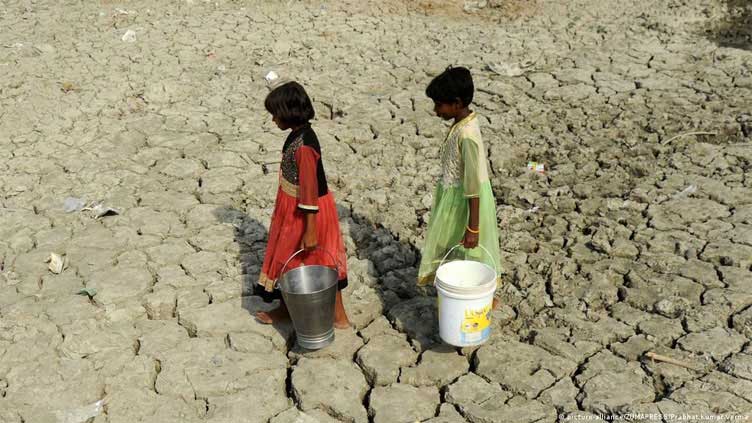WRAP to address Pakistan's water woes

Pakistan
WRAP to address Pakistan’s water woes
ISLAMABAD (APP) - The International Water Management Institute (IWMI) Pakistan, supported by UKaid, is spearheading the Water Resource Accountability in Pakistan (WRAP) programme to address critical water challenges confronting Pakistan.
The program is designed to strengthen water resource management capabilities at the federal, provincial and district levels.
Amidst Pakistan’s ongoing water management difficulties, a prominent issue is the lack of reliable annual water accounts that detail water availability, encompassing surface, groundwater and rainfall along with their diverse uses in domestic, industrial, agricultural and environmental contexts within the Indus basin.
The National Water Policy 2018’s (NWP) Section 22 emphasises the necessity of a robust water information system to facilitate sustainable water resource planning and development.
Responding to this imperative need, IWMI Pakistan recently organised a consultation workshop focused on water accounting and water resources assessment standards to support the implementation of the national water policy.
After a federal-level water accounting workshop held earlier this year in March, a series of provincial-level workshops are currently underway.
These workshops aim to assess the status of water accounting mechanisms within each province and enhance the capacity of provincial departments in this regard.
Dr Mohsin Hafeez, the director of Water, Food & Ecosystems at IWMI, warmly welcomed the workshop’s participants and provided an insightful overview of the WRAP programme, particularly the component 1, which emphasises climate-resilient solutions for improving water governance (CRS-IWaG).
Hafeez stressed the importance of forging a path towards a sustainable future by identifying critical areas and solutions for improved water management in Khyber Pakhtunkhwa (KP).
He emphasised the unveiling of a game-changing water accounting framework to monitor water sources, consumption and availability.
The workshop saw attendance from key stakeholders, policymakers, water experts, and practitioners.
Khyber Pakhtunkhwa Caretaker Minister for Irrigation Engr Ahmad Jan, speaking at the event, highlighted the significance of water for both human and agricultural purposes.
He expressed concern over the lack of direction and policy in this crucial area, noting that 90 per cent of sampled water was unfit for consumption, raising concerns about water quality.
Jan voiced his openness to policy suggestions and pledged support for implementation, emphasising the importance of ownership and commitment.
He called for collective action, stating that everyone was a leader and institution unto themselves in this journey towards a brighter water future.
KP Irrigation Secretary M Tahir Orakzai pointed out the nationwide water accounting challenge, citing missing crucial data that hampered framework implementation. He stressed the importance of collaboration in water governance and improvement, with the IWMI taking a leading role in addressing these challenges.

